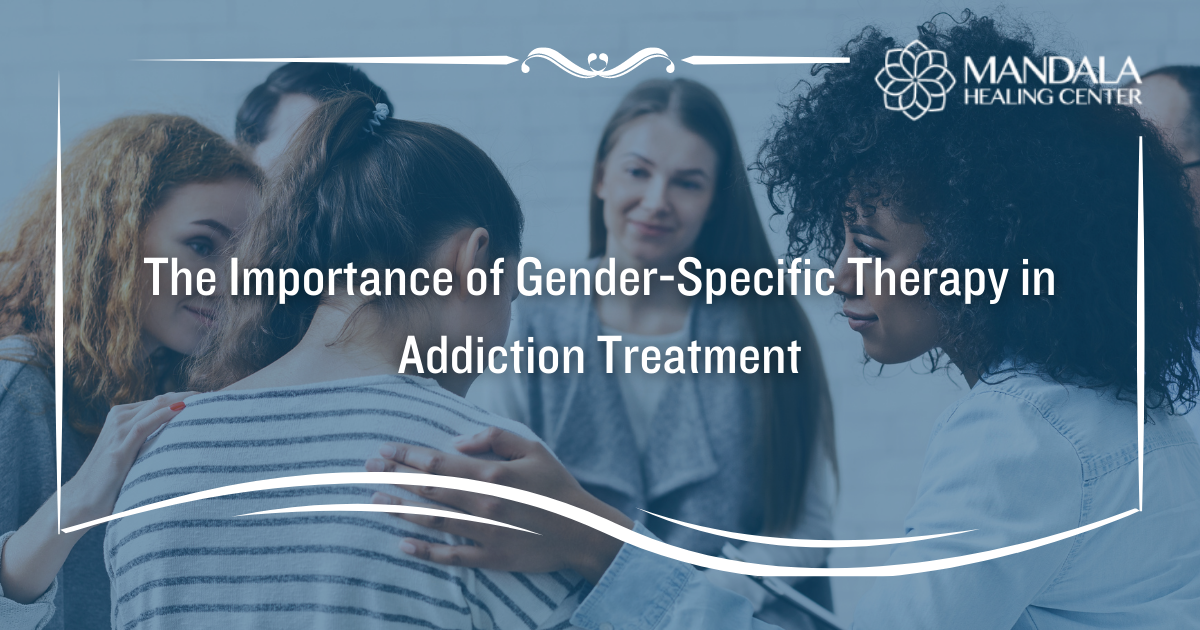Millions of people of all genders struggle with substance abuse and addiction in the United States. The effects of an untreated addiction can be devastating. Abusing drugs or alcohol can lead to a range of consequences, including physical and mental health issues, financial and legal trouble, and irreparable harm to important relationships. Addiction can alter the way a person’s brain and body function, making it very difficult to overcome addiction without professional treatment.
For anyone living with the condition, choosing to seek addiction treatment can be a life-changing choice. Doing the challenging work of addiction treatment takes time, dedication, and a lifelong commitment to sobriety.
There are a variety of levels of care and types of addiction treatment programs, including residential or inpatient programs, outpatient care, and partial or intensive outpatient programs. Within these levels of care, programs vary in their approach to treating addiction. Some are co-ed and others are gender-specific.
Despite the approach, many programs offer gender-specific therapy during addiction treatment as a way to support people in their unique journey in recovery. Gender-specific therapy offers many benefits to people whether they are in a gender-specific program or a co-ed facility.
Why is Gender-Specific Therapy in Addiction Treatment Important?
Addiction affects people of all genders, and each person has their own journey with addiction and recovery. Addiction treatment plans can be tailored to meet each person’s needs and can be changed over time as the person moves through the process.
While addiction is not gender-specific, parts of treatment–or entire programs–can be. There are many reasons why gender-specific therapy in addiction treatment can be used to facilitate healing and progress.
First, research shows that women and men have different experiences with addiction and treatment. Women tend to develop addictions more quickly than men. There is also evidence to support the theory that men and women start to use substances for different reasons. Generally, men begin using substances for their performance-enhancing or pleasant effects. Women generally begin using substances to cope with stress, mask the effects of trauma, or help them meet the demands of their daily lives.
Men and women may experience different cultural and environmental pressures when it comes to substance abuse and treatment. Men may feel cultural pressure to mask their feelings or avoid appearing weak or helpless. Women may fear losing their job or custody of their children or may fear judgment from others.
The differences men and women experience may impact their ability to effectively engage in therapy during addiction treatment. In gender-specific therapy sessions, men and women can get the information they need, stay focused on recovery, and more easily process their emotions.
How is Gender-Specific Therapy Used in Addiction Treatment Programs?
After completing medically supervised detox, people move on to an addiction treatment program that can give them the skills and support they need to overcome their addiction. During treatment, people typically engage in a range of evidence-based and holistic treatment activities, including:
- Individual therapy
- Group support
- Medication management
- Healing, holistic treatments–yoga, nutrition therapy, art, music, acupuncture, meditation, etc.
- Family therapy
- Mental health treatment
- Medical care
Addiction treatment facilities that offer gender-specific treatment programs or therapy will have separate sessions for people of different genders. Some or all of the group therapy sessions may be gender-specific.
Benefits of Gender-Specific Therapy for Women in Addiction Treatment
Women specifically benefit from gender-specific therapy during addiction treatment. Research suggests this is because of several factors related to the way women experience addiction and life in general.
Community
Women benefit from the support and camaraderie of a community–especially a community of women. While each woman has her own life experiences, there are some common concerns and experiences that many women share. Having common bonds and similar experiences can help women feel supported, safe, and heard during therapy sessions. Women are also presented with real-world examples of people at different stages of addiction and recovery.
Safety and security
To get the most out of therapy, it is important that people feel safe to share their feelings and experiences. Statistically, women are much more likely to have been the victims of sexual, emotional, or physical abuse–often from a man. Offering a safe space where women can feel safe without the presence of unfamiliar men can help them share and process difficult emotions and trauma during therapy sessions.
Common experiences
Women benefit from gender-specific therapy because they often have shared experiences. Motherhood, trauma, culture–women can connect with others about common experiences without having to explain or filter their truth.
Participating in gender-specific therapy during addiction treatment gives women the chance to focus solely on their recovery and learn the specific skills they need to be successful in recovery.
Find The Help You Deserve Today
At the Mandala Healing Center, we believe that anyone can recover from addiction if they get the right support and treatment. Addiction is a whole-self condition, and our programs use evidence-based and holistic treatments that can help your mind, body, and spirit heal during recovery.
If you have been waiting to get the treatment you need and deserve, don’t put it off for another day. Call today to talk to one of our admissions counselors about starting life-changing addiction treatment.












